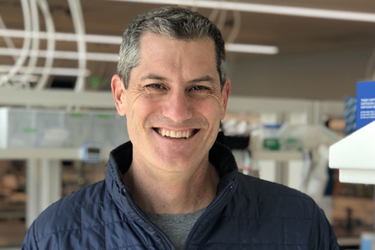Inside Novome Biotechnologies' Phase 1 Study of NOV-001

By Erin Harris, Editor-In-Chief, Cell & Gene
Follow Me On Twitter @ErinHarris_1

Novome Biotechnologies recently announced positive results from a Phase 1 study of orally administered NOV-001 in healthy volunteers. The Phase 1 study demonstrated the ability to safely colonize the human gut with a therapeutically engineered microbe and control its abundance via once-daily dosing of a prebiotic control molecule. Based on these results, Novome intends to commence a Phase 2a study to evaluate preliminary efficacy in patients with enteric hyperoxaluria.
Patients with enteric hyperoxaluria have chronically elevated levels of oxalate in their urine that puts them at increased risk of developing kidney stones and, in more severe cases, chronic kidney disease and kidney failure. I caught up with Blake Wise, CEO at Novome Biotechnologies, to better understand the biotech’s NOV-001 study as well as what is in store for its pipeline.
Briefly explain Novome Biotechnologies and its pipeline.
Novome Biotechnologies is a clinical-stage biotechnology company developing engineered cellular therapies for the gut to treat chronic diseases. We've developed the first platform for the controlled colonization of the gut with engineered bacteria that can deliver targeted therapeutic cargos and functions, we call these Genetically Engineered Microbial Medicines (GEMMs). We are using the GEMMs platform in our lead program in enteric hyperoxaluria, which is focused on the development of a therapeutic strain of bacteria that degrades oxalate to decrease the risk of kidney stone formation. We are advancing a pipeline that includes programs in inflammatory bowel disease (where we recently announced a partnership with Genentech), irritable bowel syndrome and immuno-oncology.
Explain the results of Novome’s Phase 1 Study of NOV-001.
This Phase 1 study assessed orally administered NOV-001 in healthy volunteers. The study demonstrated the ability to safely colonize the human gut with a therapeutically engineered microbe and control its abundance via once-daily dosing of a seaweed-derived prebiotic polysaccharide control molecule, which acts as a privileged carbon source for our therapeutically engineered strain. We were able to produce high levels of engraftment of the strain in the gastrointestinal tract and the abundance of the strain was dependent on the dose of the prebiotic administered.
Explain what’s next with the trial.
The second stage of the study, Phase 2a, is a prospective, randomized, single-blinded, placebo-controlled study of the safety, tolerability, and early efficacy in patients with enteric hyperoxaluria. We have initiated patient screening for this portion of the trial.
Why is the successful completion of this first-in-human study is an important step for Novome?
This FIH study is important for Novome because it both advances our enteric hyperoxaluria program to Phase 2 and provides strong support for the potential of our GEMMs platform because it validates our approach to controllably and safely engraft a therapeutically engineered microbe into the human gut.
Explain in detail the patient population.
Hyperoxaluria is a metabolic disorder characterized by significantly elevated urinary oxalate levels. It is often associated with kidney stones, chronic kidney disease (CKD) and other serious diseases. Enteric hyperoxaluria results from underlying chronic GI disorders, such as bariatric surgery or inflammatory bowel disease, that cause increased absorption of dietary oxalate, which is present in many healthy foods. There are approximately 250,000 patients in the United States with enteric hyperoxaluria and there are no FDA-approved therapies.
What is on the roadmap for Phase 2a Study of NOV-001?
We have initiated multiple clinical sites for the Phase 2a study and have begun patient screening. We plan to enroll 20 patients with the primary objective of demonstrating preliminary efficacy via reduction in urine oxalate excretion. NOV-001 will enable controlled engraftment of the gut with a microbial strain engineered to efficiently degrade oxalate in the GI tract in order to decrease the risk of progressive kidney damage and kidney stone formation.
